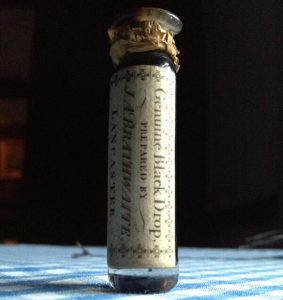“There are no ghosts in daylight. You’ll get used to our nights at Diodati. A little indulgence to heighten our existence on this miserable Earth. Nights of the mind, the imagination. Nothing more.”
Lord Byron in “Gothic” (1986)
Sex, Drugs, and Poetry
This larp draws inspiration from the film, Gothic, by Ken Russell, a 1986 psychological horror film that is a fictionalised retelling of the Shelleys visit to Lord Byron in Villa Diodati, where — resulting from of a night of drugs and madness — various horror stories were created including Mary Shelley’s Frankenstein and John Polidori’s The Vampyre. We strongly suggest that you watch this film before signing up for the larp. At the time of writing it appears to be available — in its entirety — on YouTube. It may also be available on AppleTV and/or Amazon Prime depending on which country you are based in.
During the larp you will first play the role of one of the five poets. You will write poetry, drink, dance, fall deep into laudanum dreams and nightmares, summon the unquiet spirits of the dead, seduce and traduce and tread an uneasy path towards “despondency and madness” (Wordsworth, 1807).
Then you will play the larp a second time as the servant to the same poet. The servants are reflections of — or reactions to — the poets, and they will enable you to experience the same story from a slightly different angle. They are what the poet might have been, or perhaps how they see themselves, or perhaps even how they write their own heroes. You might feel like the poets are taking inspiration from you to create their stories, extracting the realness of you in order to create their own poetry. Perhaps you resent them for treating you like you are one of them, for not seeing how vastly different your situations are? Or perhaps you love being allowed into the inner circle of some of the most famous poets of the era?
Regardless of where you take your servant character’s story, you will be responsible for creating nightmares for your poets during play, leading them deep into the darkness. You will also make a choice about whether to play your servant character towards destruction or redemption.
Playing a servant will not be an upstairs/downstairs experience. Richard Hoppner, the Venice Consul, described Byron as being “culpably lenient” with his staff and that “he rather bantered with them than spoke seriously to them.” There will be opportunities to calibrate with your poet to discuss and agree the limits of the servant role, and the experience you want to play.
